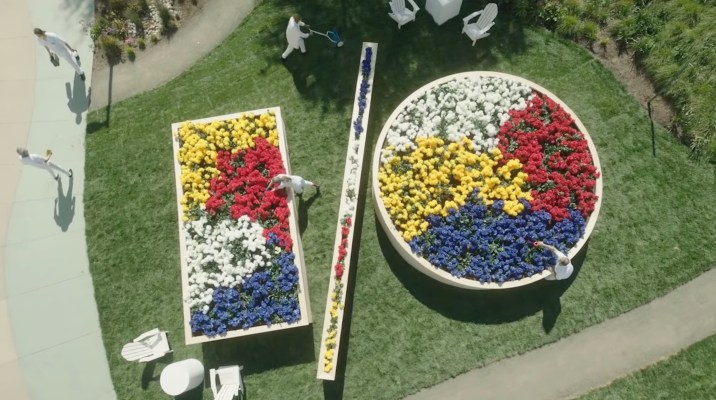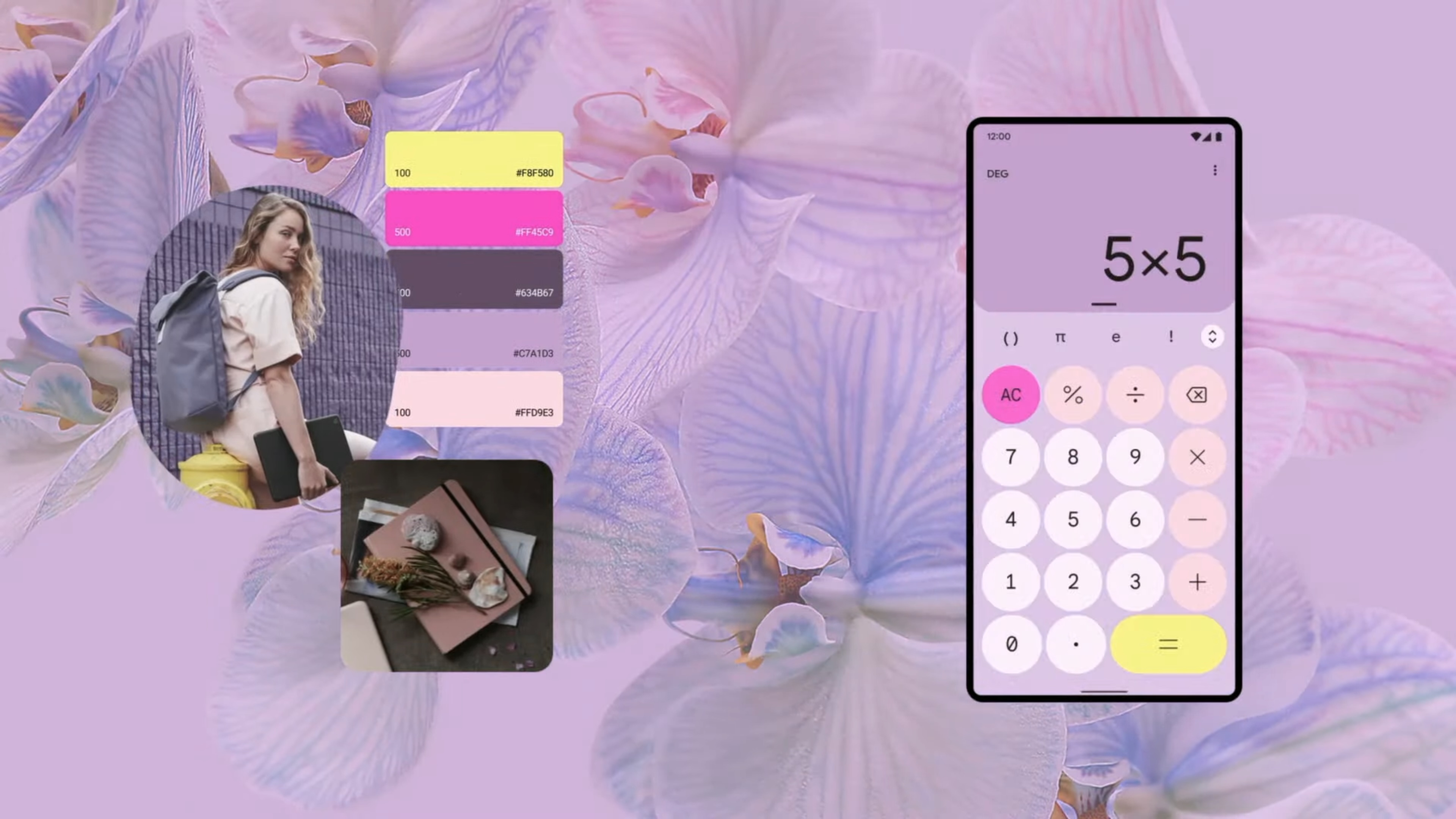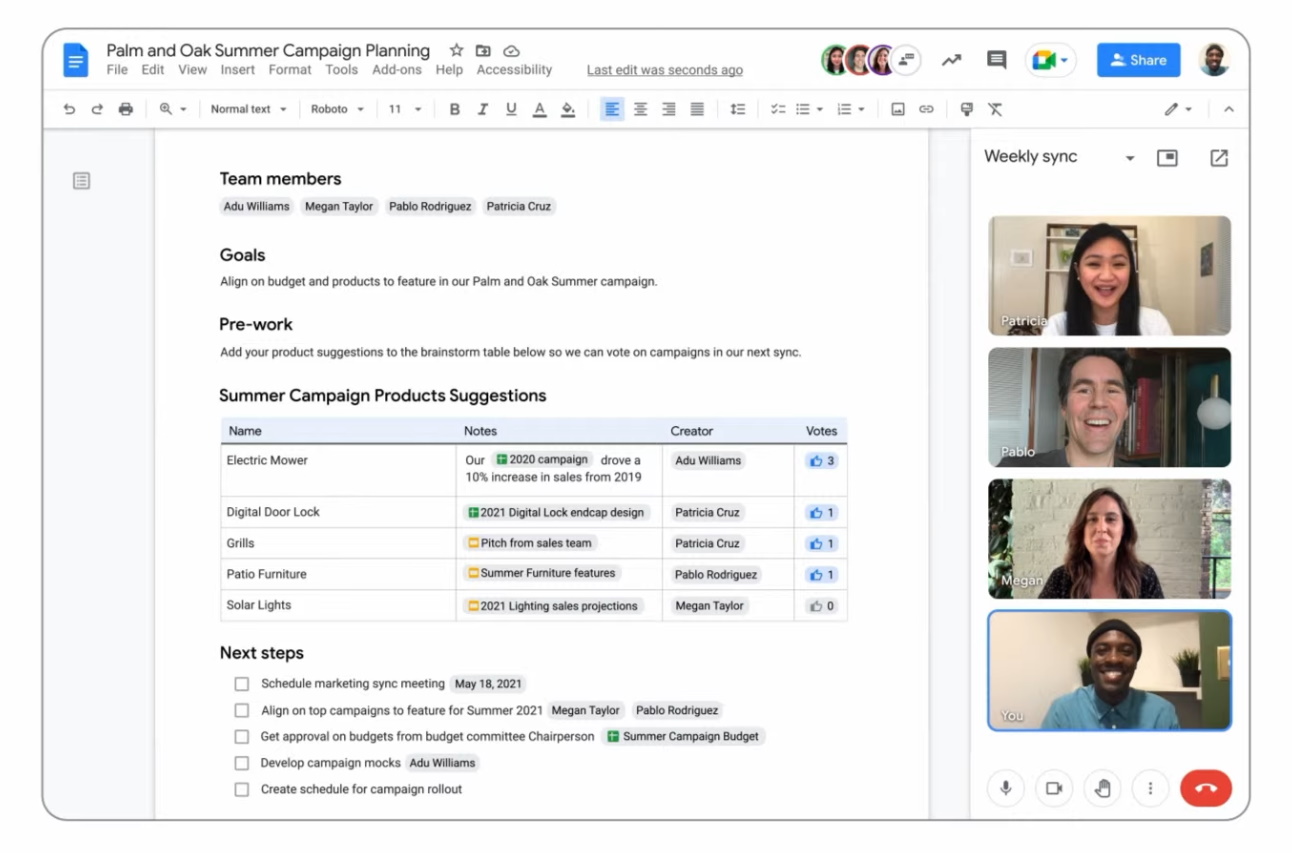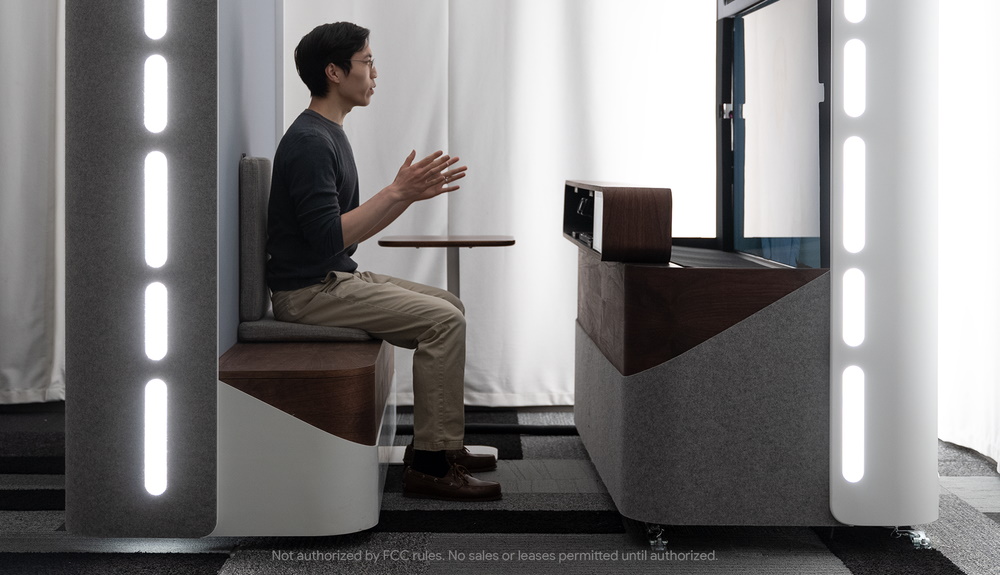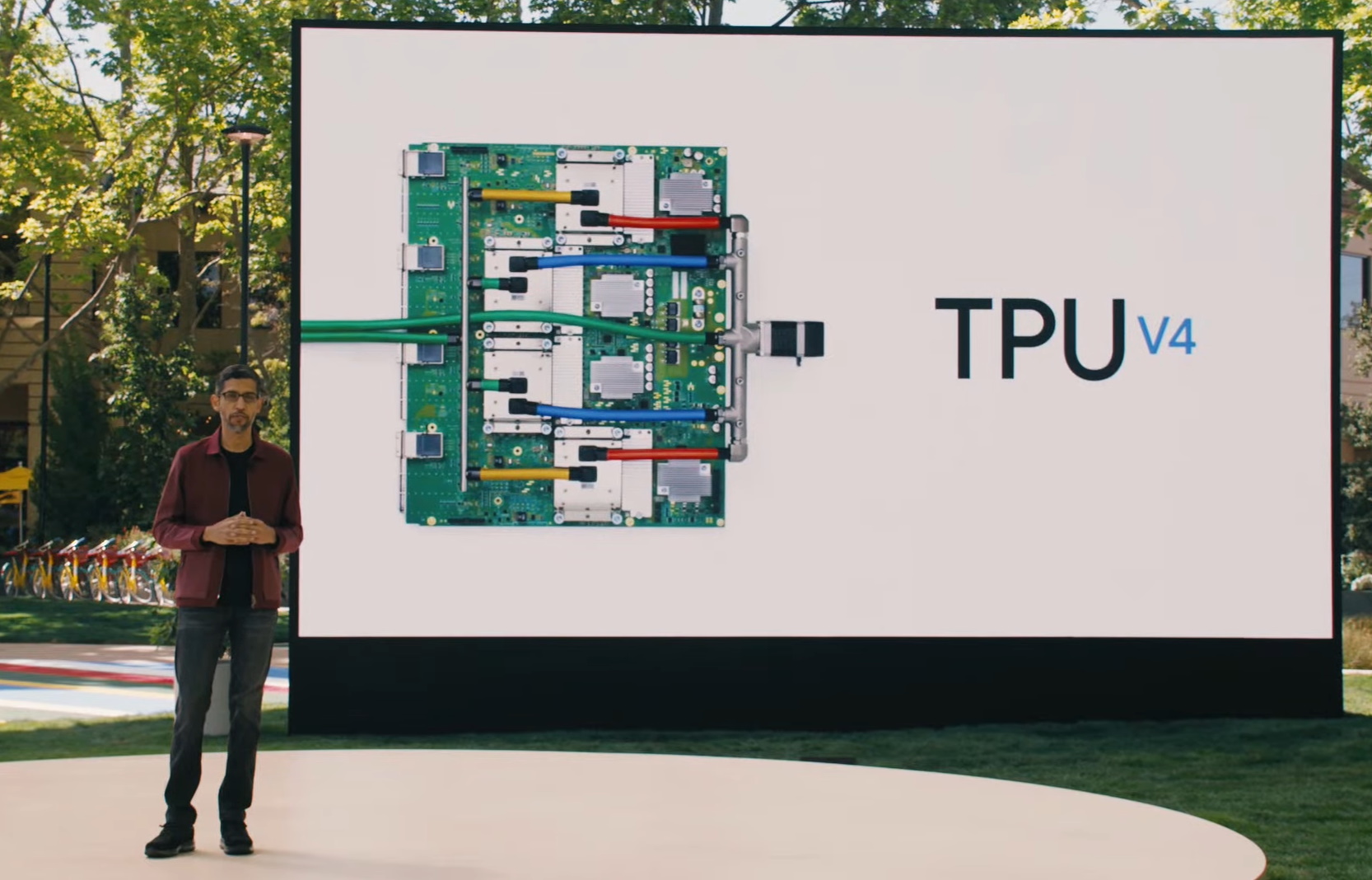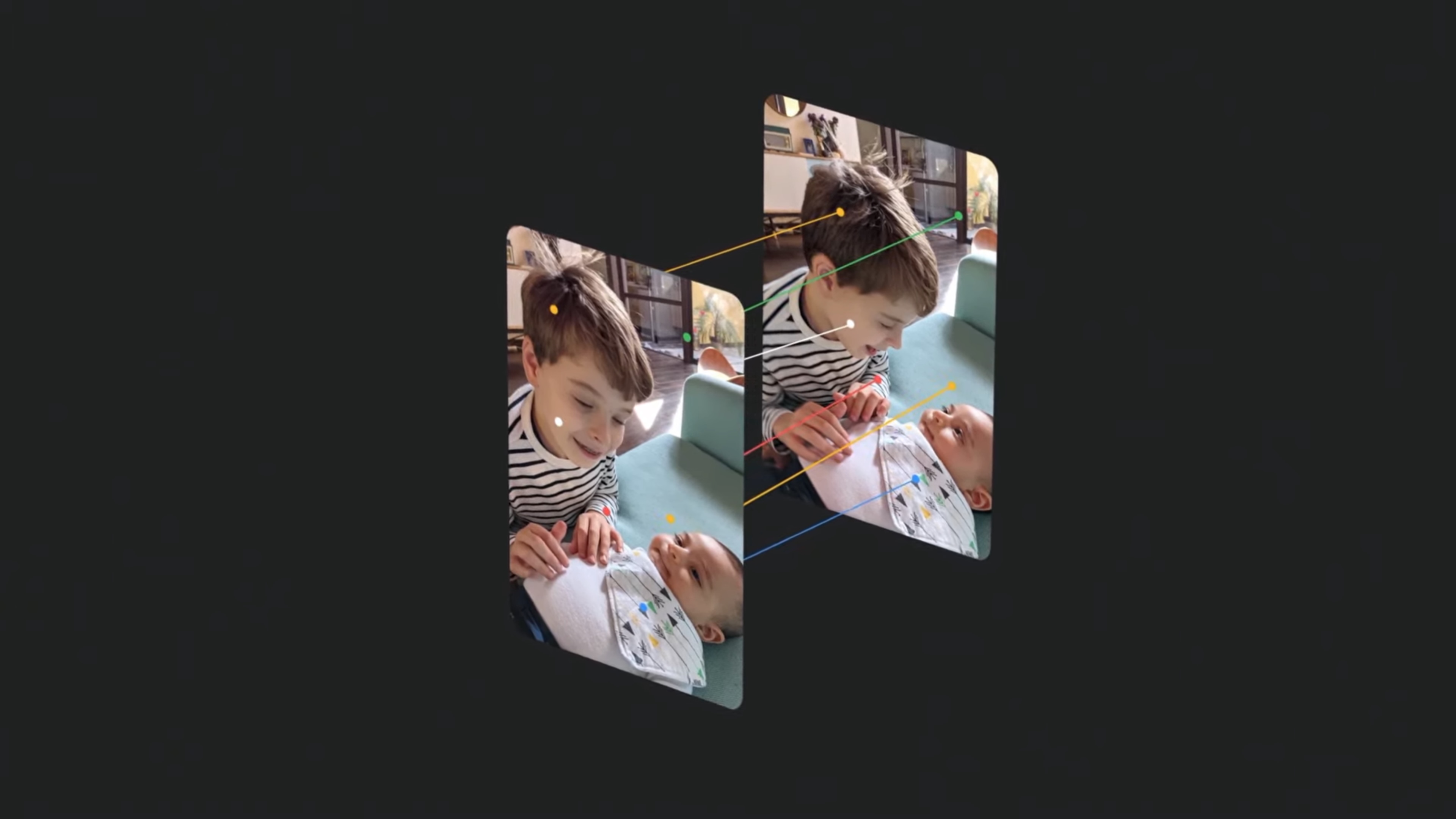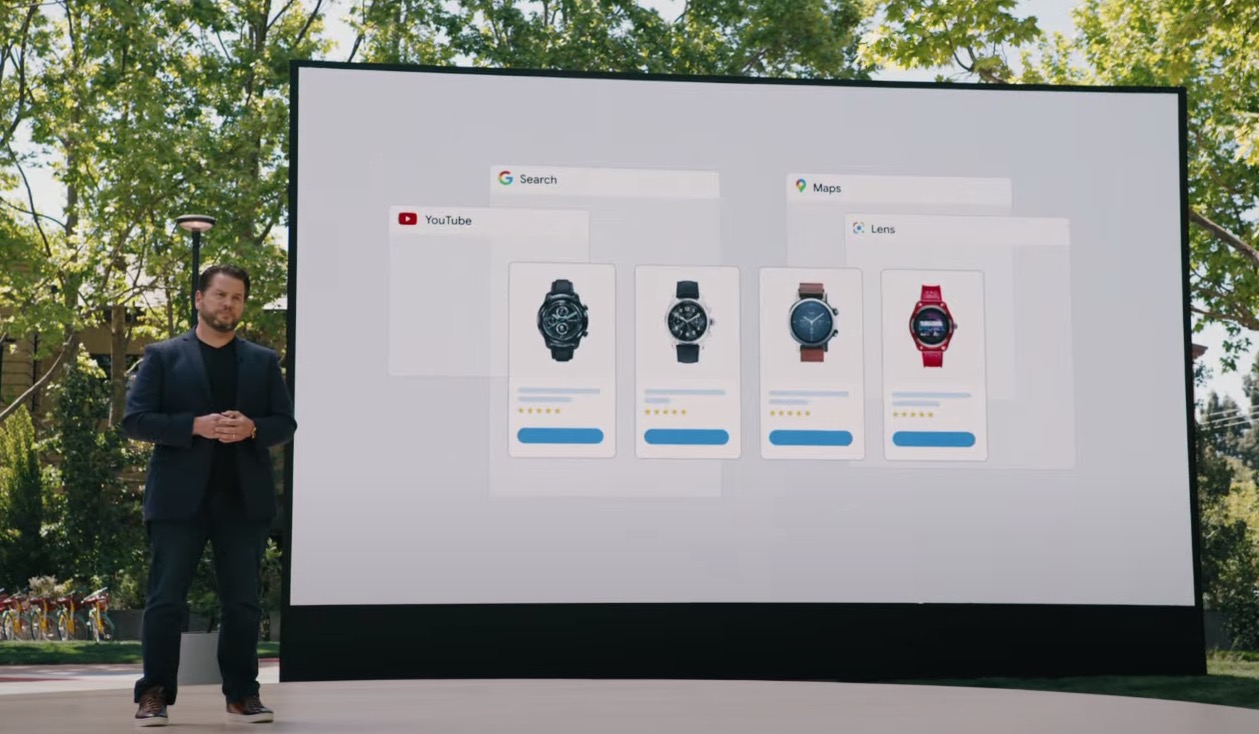Products You May Like
This year’s I/O event from Google was heavy on the “we’re building something cool” and light on the “here’s something you can use or buy tomorrow.” But there were also some interesting surprises from the semi-live event held in and around the company’s Mountain View campus. Read on for all the interesting bits.
Android 12 gets a fresh new look and some quality of life features
We’ve known Android 12 was on its way for months, but today was our first real look at the next big change for the world’s most popular operating system. A new look, called Material You (yes), focuses on users, apps, and things like time of day or weather to change the UI’s colors and other aspects dynamically. Some security features like new camera and microphone use indicators are coming, as well as some “private compute core” features that use AI processes on your phone to customize replies and notifications. There’s a beta out today for the adventurous!
Wow, Android powers 3 billion devices now
Subhed says it all (but read more here). Up from 2 billion in 2017.
Smart Canvas smushes Docs, productivity, and video calls together
Millions of people and businesses use Google’s suite of productivity and collaboration tools, but the company felt it would be better if they weren’t so isolated. Now with Smart Canvas you can have a video call as you work on a shared doc together and bring in information and content from your Drive and elsewhere. Looks complicated, but potentially convenient.
AI conversations get more conversational with LaMDA
It’s a little too easy to stump AIs if you go off script, asking something in a way that to you seems normal but to the language model is totally incomprehensible. Google’s LaMDA is a new natural language processing technique that makes conversations with AI models more resilient to unusual or unexpected queries, making it more like a real person and less like a voice interface for a search function. They demonstrated it by showing conversations with anthropomorphized versions of Pluto and a paper airplane. And yes, it was exactly as weird as it sounds.
Google built a futuristic 3D video calling booth
One of the most surprising things at the keynote had to be Project Starline, a high-tech 3D video call setup that uses Google’s previous research and Lytro DNA to show realistic 3D avatars of people on both sides of the system. It’s still experimental but looks very promising.
Wear OS gets a revamp and lots of health-focused apps
Few people want to watch a movie on their smartwatch, but lots of people like to use it to track their steps, meditation, and other health-related practices. Wear OS is getting a bunch of Fitbit DNA infused, with integrated health tracking stuff and a lot of third party apps like Calm and Flo.
Samsung and Google announce a unified smartwatch platform
These two mobile giants have been fast friends in the phone world for years, but when it comes to wearables, they’ve remained rivals. In the face of Apple’s utter dominance in the smartwatch space, however, the two have put aside their differences and announced they’ll work on a “unified platform” so developers can make apps that work on both Tizen and Wear OS.
And they’re working together on foldables too
Apparently Google and Samsung realized that no one is going to buy foldable devices unless they do some really cool things, and that collaboration is the best way forward there. So the two companies will also be working together to improve how folding screens interact with Android.
Android TV hits 80 million devices and adds phone remote
The smart TV space is a competitive one, and after a few starts Google has really made it happen with Android TV, which the company announced had reached 80 million monthly active devices — putting it, Roku, and Amazon (the latter two with around 50 million monthly active accounts) all in the same league. The company also showed off a powerful new phone-based remote app that will (among other things) make putting in passwords way better than using the d-pad on the clicker. Developers will be glad to hear there’s a new Google TV emulator and Firebase Test Lab will have Android TV support.
Your Android phone is now (also) your car key
Well, assuming you have a really new Android device with a UWB chip in it. Google is working with BMW first, and other automakers soon most likely, to make a new method for unlocking the car when you get near it, or exchanging basic commands without the use of a fob or Bluetooth. Why not Bluetooth you ask? Well, Bluetooth is old. UWB is new.
Vertex collects machine learning development tools in one place
Google and its sibling companies are both leaders in AI research and popular platforms for others to do their own AI work. But its machine learning development tools have been a bit scattershot — useful but disconnected. Vertex is a new development platform for enterprise AI that puts many of these tools in one place and integrates closely with optional services and standards.
There’s a new generation of Google’s custom AI chips
Google does a lot of machine learning stuff. Like, a LOT a lot. So they are constantly working to make better, more efficient computing hardware to handle the massive processing load these AI systems create. TPUv4 is the latest, twice as fast as the old ones, and will soon be packaged into 4,096-strong pods. Why 4,096 and not an even 4,000? The same reason any other number exists in computing: powers of 2.
And they’re powering some new Photos features including one that’s horrifying
Google Photos is a great service, and the company is trying to leverage the huge library of shots most users have to find patterns like “selfies with the family on the couch” and “traveling with my lucky hat” as fun ways to dive back into the archives. Great! But they’re also taking two photos taken a second apart and having an AI hallucinate what comes between them, leading to a truly weird looking form of motion that shoots deep, deep into the uncanny valley, from which hopefully it shall never emerge.
Forget your password? Googlebot to the rescue
Google’s “AI makes a hair appointment for you” service Duplex didn’t exactly set the world on fire, but the company has found a new way to apply it. If you forget your password, Duplex will automatically fill in your old password, pick a new one and let you copy it before submitting it to the site, all by interacting with the website’s normal reset interface. It’s only going to work on Twitter and a handful of other sites via Chrome for now, but hey, if it happens to you a lot, maybe it’ll save you some trouble.
Enter the Shopping Graph
The aged among our readers may remember Froogle, Google’s ill-fated shopping interface. Well, it’s back… kind of. The plan is to include lots of product information, from price to star rating, availability and other info, right in the Google interface when you search for something. It sucks up this information from retail sites, including whether you have something in your cart there. How all this benefits anyone more than Google is hard to imagine, but naturally they’re positioning it as wins all around. Especially for new partner Shopify. (Me, I use DuckDuckGo.)
Flutter cross-platform devkit gets an update
A lot of developers have embraced Google’s Flutter cross-platform UI toolkit. The latest version, announced today, adds some safety settings, performance improvements, and workflow updates. There’s lots more coming, too.
Firebase gets an update too
Popular developer platform Firebase got a bunch of new and updated features as well. Remote Config gets a nice update allowing developers to customize the app experience to individual user types, and App Check provides a basic level of security against external threats. There’s plenty here for devs to chew on.
The next version of Android Studio is Arctic Fox
The beta for the next version of Google’s Android Studio environment is coming soon, and it’s called Arctic Fox. It’s got a brand new UI building toolkit called Jetpack Compose, and a bunch of accessibility testing built in to help developers make their apps more accessible to people with disabilities. Connecting to devices to test on them should be way easier now too. Oh, and there’s going to be a version of Android Studio for Apple Silicon.
